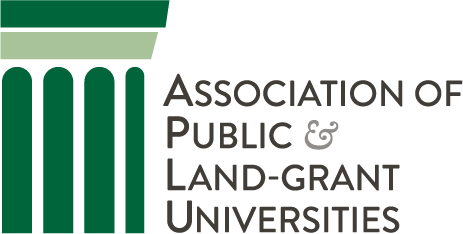Early in 2024, Kristy Houle was new to Harris-Stowe State University, a public HBCU in St. Louis, when the Assistant Provost for Retention and Student Success, Aline Phillips, asked her to coordinate the institution’s participation in a 16-week program on building an academic data culture.
“I was brought in as Director of Assessment as part of building up our assessment and data culture, because we are very challenged in that area,” Houle says.
“So there is a lot of opportunity for growth for us. Looking at the policies and procedures in place for data, the infrastructure around data, it has just been folks given a task and trying to make the pieces fit.”
None of this challenge was unique to Harris-Stowe, she explains. “Higher ed struggles because we collect data, but sometimes it’s not valid. Sometimes it isn’t consistent. And then we fall apart when it comes to sitting down and analyzing and using data to tell our story.”
The opportunity to work intensively on these issues came via Building an Academic Data Culture to Support Student Success in spring and summer 2024, delivered by the Association of Public & Land-grant Universities (APLU). The program is designed to help cohorts develop custom action plans for using data for student success. It’s one of a menu of professional development services offered by Every Learner Everywhere’s network partners centering digital learning and equity.
“This was brought to us as a way to look at the infrastructure of our data,” Houle says. “We grabbed it, because it sounded like a great learning opportunity for us. It gave us a catalyst to move into what we want our data infrastructure to look like moving forward.”
A safe space to improve in
Joining Houle in this project were 11 colleagues from institutional research, faculty, financial aid, The Academic Resource Center, Student Success and Advising, and other student affairs and counseling offices.
The group met with experts at APLU and Every Learner 12 times over 16 weeks, internally to work on their assignments, and occasionally with their mentor, Kim Brooks from Bowling Green State University. Much of the work was on getting better as an institution at collecting, organizing, cleaning, and, ultimately, analyzing data.
“There were scheduling challenges in the summer,” Houle says. “But everyone was dedicated to making it work, because we knew it was valuable.”
Building these skills with a goal of improving student success meant the group had to be vulnerable. “We wanted the world to think we are doing what we need to do,” Houle says. “But if we want to really see results, we have to open ourselves up and be real and have honest, uncomfortable conversations to show growth.”
She describes the professional development project as a “safe space” where colleagues can be transparent and work out how to make improvements: “Every Learner Everywhere really created that space for us, along with our mentor. They said, ‘It doesn’t matter where you are. We’re just here to support you.’ They were great at not making us feel like we have to prove something.”
Related reading — Data Culture, Data Literacy, and Building a Community of Practice at Your College or University
Turning over rocks
For their project, the Harris-Stowe cohort decided to focus on understanding retention among first-generation students at risk of stopping out. When the group started, they were sometimes surprised at what relevant data did exist in different parts of the institution, such as the counseling office.
“We never knew that because we weren’t asking the right questions in the right spaces,” Houle says. “The process of turning over rocks was helpful. Saying, ‘Oh, wow. We didn’t understand we could do it this way.’”
Houle also says manipulating data to get useful insights is a particular skill that universities need to concentrate on. “A lot of times, folks look at data in one way and that will be the end of it,” she explains. “They don’t say, for example, ‘We’ve got 82 percent of students who show this. Let’s pull that apart and ask what this 5 percent is doing. Where are the gaps and the patterns?’”
In the case of the Harris-Stowe initiative, their data began to point emphatically to students experiencing financial strains as a major cause of stopping out. Then, digging deeper, student loan balances emerged as an especially important indicator.
Acting on those insights comes next. At Harris-Stowe, the university is developing more financial literacy programming for both students and their parents, including support for completing the FAFSA and scholarship applications. They are also being more proactive about helping students anticipate and understand their bills.
The university is also redesigning a collection of administrative offices into The Hornet Hub, meant to be a one-stop shop for students.
Of course, stopping out is also influenced by the classroom experience, and Houle recently devoted October to “assessment month,” with weekly workshops for faculty on understanding what institutional data shows about engaging and retaining students.
Related reading — From Spreadsheets to Insights: How Piedmont Technical College Is Building Data Skills for Student Success
Data as strategy
Houle says the cohort’s work in this professional development program has nudged along some cultural evolution at Harris-Stowe, making it less siloed, for example, and facilitating conversations and collaborations that wouldn’t have happened otherwise.
One of the strategic goals at Harris-Stowe is enhancing student retention through strategic interventions, so this program “fit perfectly,” Houle says. “We started with the mission and goals — the strategic plan — and said, ‘Where can we dive into something we should already be doing?’”
“A lot of people could go in thinking, ‘Oh, another, another project on top of everything else we’re doing.’ But we just put this together with everything else. I think we realized it’s not an extra thing, that it’s what we already do but learning to do it better. And that’s continuous improvement, right?”
Learn more about Building an Academic Data Culture to Support Student Success


